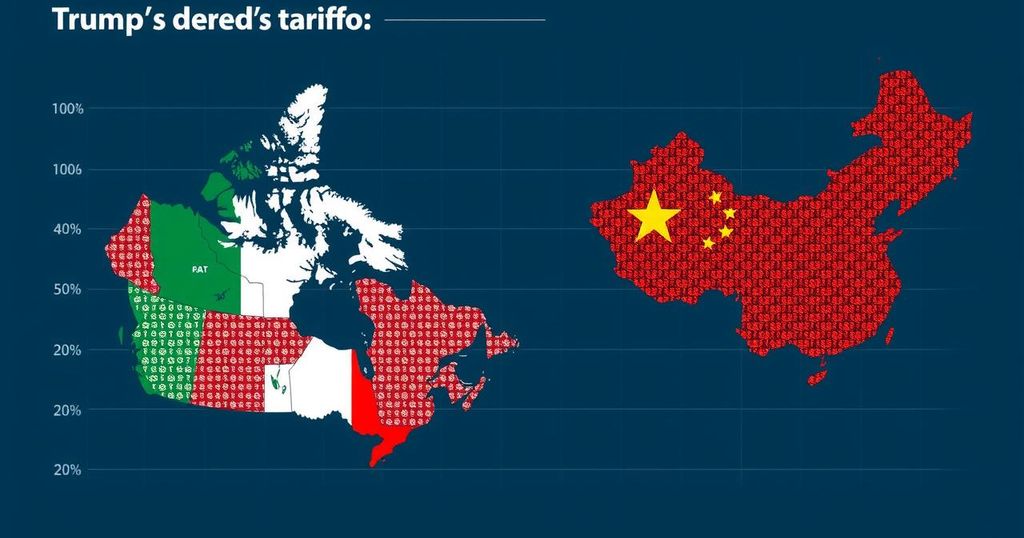Impact of Trump’s Proposed Tariffs on Global Companies

President-elect Donald Trump’s proposed tariffs on Canada, Mexico, and China could significantly impact global companies, especially in the automotive and electronics sectors. Firms like Audi, Honda, Foxconn, and P&G are reassessing production and supply chain strategies in response to possible trade disruptions. The automotive industry is particularly exposed due to heavy reliance on Mexican manufacturing for U.S. exports. This situation presents challenges and uncertainties for businesses navigating the evolving trade landscape.
President-elect Donald Trump has vowed to impose tariffs on the United States’ primary trading partners: Canada, Mexico, and China, posing significant implications for global companies reliant on cross-border trade. This initiative could lead to escalated trade conflicts, as highlighted by various automotive, electronics, food and beverage, and retail sectors potentially affected. Automotive giants such as Audi, BMW, and Honda Motor may reconsider their production strategies in Mexico due to the expected tariffs impacting their export markets. Similarly, electronics manufacturers like Foxconn and Lenovo, as well as retail chains including H&M, have expressed concerns about how proposed tariffs may disrupt their supply chains.
The automotive sector stands out as particularly vulnerable, with manufacturers such as Nissan and Toyota substantially dependent on production in Mexico for U.S. exports. Likewise, companies like P&G and Unilever in the packaged goods industry are facing exposure to these tariffs, emphasizing the potential for widespread repercussions across multiple sectors affected by U.S. trade policies.
The proposed tariffs by President-elect Trump are a significant reflection of his administration’s trade policy strategy, aimed at protecting American manufacturing jobs. Both Canada and Mexico are key trading partners for the United States, making the potential tariffs not only critical for economic relations but also for companies that operate transnationally. With many businesses relying heavily on operations in Mexico for exports to the U.S., the anticipated tariffs could lead to increased operational costs and market adjustments in their strategies. Understanding the landscape of affected sectors provides insight into the broader ramifications of these tariffs.
In conclusion, the potential tariffs pledged by President-elect Trump pose a significant challenge for various sectors, particularly automakers and electronics manufacturers with substantial operations in Mexico. As these companies assess and adapt to the impending trade barriers, the possibility of increased production costs and changes in supply chain dynamics becomes increasingly plausible. Companies must remain vigilant in evaluating the impact of these significant policy changes to mitigate potential risks to their operations and market positions.
Original Source: www.business-standard.com




